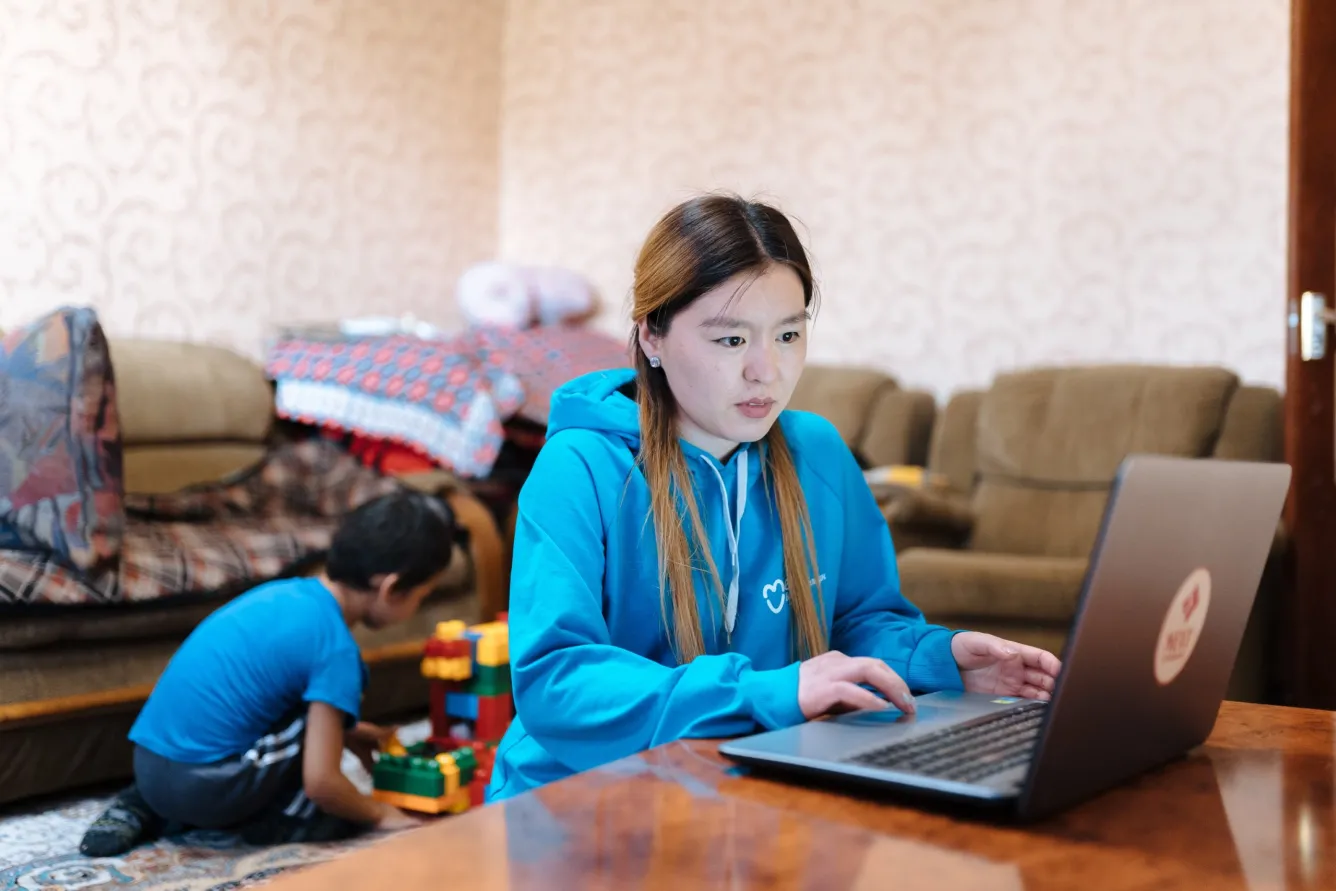Supporting Distance Learning For Every Child In Kyrgyzstan
Guest blog by Nazigul Zhusupova for UNICEF Connect.
The global COVID-19 pandemic changed lives in Kyrgyzstan as it did in many parts of the world. Due to the state of emergency in some cities and regions, including the capital Bishkek, many institutions were closed, some organizations switched to remote working, and people were only allowed to leave their houses to go to essential locations.
In light of the situation and early closure of schools, the Ministry of Education and Science, with the support of UNICEF and other development partners, developed a remote learning platform for all students and preschool children as of April 8. Over 1.7 million children were expected to follow the video lessons via various TV channels across the country, in which teachers conduct their classes according to the school curriculum. More than 200 teachers from Bishkek and Osh are involved in developing these educational materials.
Due to the state of emergency, UNICEF Volunteers had paused their awareness campaigns in schools. Meanwhile, they continue their activities online, including a new and innovative task: contributing to remote learning materials. Over the last few weeks, volunteers have transcribed more than 400 video lessons in Russian and Kyrgyz, which are used to support sign language interpretation in Russian and, in coming weeks, will be used to translate text and include subtitles in other languages in the country, such as Uzbek and Tajik, making lessons accessible for every child.

At the moment, more than 50 UNICEF Volunteers from all over Kyrgyzstan are involved in this work.
“We transcribe everything the teachers say, starting with the word “hello” to when they say goodbye to children. Video duration may vary from 10 to 23-25 minutes. Then we forward the texts to the Ministry of Education and Science, which are used to support sign language interpretation”, explains volunteer Nuraiym Askarbekova. Due to COVID-19, she is now studying, working and volunteering from home.
“I watch my friends’ children and see how it is difficult now for both parents and children to adapt to this remote learning system, as they are not yet used to it. But distance learning might be the only available option at the moment for children to keep up with the school curriculum”, says another volunteer, Iryna Grytsiv. Irina has transcribed more than 15 video lessons since the start of the transcription work.
For the volunteers’ interaction and cooperation, a WhatsApp group was created — “Hello. I’m at work and have some spare time at the moment. If you have a new video to send, I will quickly transcribe it,” writes volunteer Zinagul Termechikova.

As part of their public service, some volunteers have also acquired new skills. For example, volunteer Daniyar Jenishbekov described his gratitude for this work had allowed him to concentrate and type more quickly — “When transcribing and translating the text, all attention is focused on the video, on the teacher’s words, you are completely immersed in this atmosphere, which means you write down the material word by word, repeating the teacher’s words in your mind, sometimes rewinding to make sure you got it correctly”, says Daniyar.
Dilbara Muratova is a volunteer from Karakol, in the east of the country, where she continues to work during quarantine while also taking care of two children and doing some farming. She is one of the most active UNICEF volunteers in her region and mentors the work of new UNICEF volunteers. “Transcribing video lessons is not difficult; it only requires time and patience. In the beginning, I covered Kyrgyz language classes. Now I mainly transcribe math, algebra and geometry,” she says.
“No matter when I send video lessons for transcription, whether early in the morning or late at night, I always get a prompt response, no volunteer has ever refused. And everyone says they do it for children!”, says UNICEF Volunteers Programme Manager, Aijan Abdesova. According to Abdesova, volunteers transcribe up to 15-20 video lessons in two languages daily.
Additionally, through video lessons with sign language interpretation, remote studying will be available for children with hearing impairments, giving them equal access to education.
Filming video lessons is still ongoing, and UNICEF Volunteers will continue to transcribe every word over the coming weeks to support the Ministry of Education and Science to make sure that remote education in Kyrgyzstan is available and that no child is left behind.
Nazigul Zhusupova has been part of UNICEF Kyrgyzstan’s Volunteer Initiative since April 2019. She is a Parliamentary correspondent at AKIpress News Agency and a graduate of the Department of International Relations of the Kyrgyz-Russian Slavic University.
